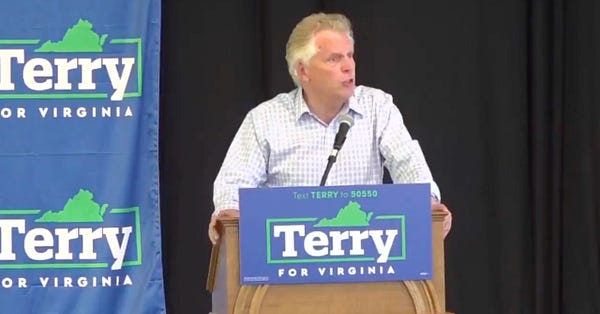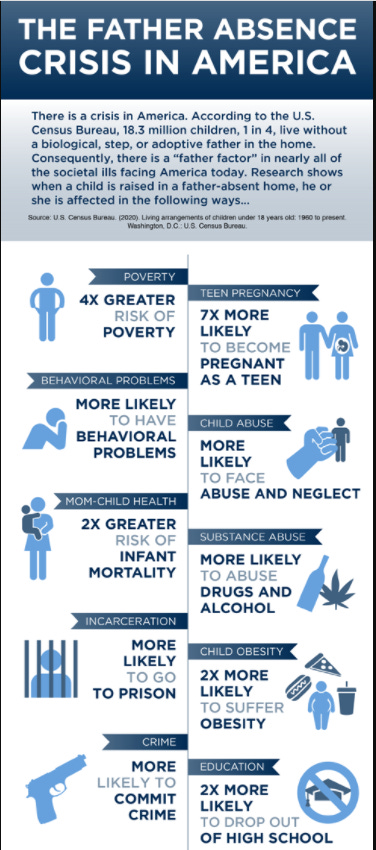“There is no alternative” was a phrase originated by 19th Century political philosopher Herbert Spencer and popularized by British prime minister Margaret Thatcher relative to her unshakeable commitment to the idea that a market economy is the best, right, and only system that works.
More recently, TINA, supported by FOMO and YOLO, means something quite different. Owners of stocks today are rightly concerned about high valuations and other indicators of potential market difficulty – all-time highs this week notwithstanding (especially since stellar earnings have arguably made stocks cheaper on the way up). The Fed’s insistence that interest rates (and bond yields) be driven ever lower, the volatility of commodities, and the illiquidity of other possibilities has meant there is no good alternative to equities.
This week’s TBL will propose another TINA usage entirely.
If you like The Better Letter, please subscribe, share it, and forward it widely. It’s free, there are no ads, and I never sell or give away email addresses.
Thank you for reading.
TINA
Halloween arrives this weekend. With it will come kids, costumes, candy, and lots of horror movie marathons. John Carpenter’s 1982 bleak cult classic, The Thing (initially hated by critics), will be on lots of playlists. It features American researchers in Antarctica who encounter the eponymous “Thing” – a parasitic extraterrestrial life-form that assimilates, then imitates other organisms. The group becomes overcome by paranoia and conflict as they discover they can no longer trust each other and that any one of “them” could be the Thing, whose own survival depends upon establishing misplaced trust with its human victims.
The film’s nihilism works better in today’s world than it did originally, competing against E.T.’s cuddly alien for audience attention.
“Nobody trusts anybody now,” Kurt Russell, as the group’s unofficial leader, recounts late in the movie. “And we’re all very tired.”
“Nothing else I can do. Just wait.”
The film ends with the two remaining researchers, one or both assimilated by the Thing, exhausted and slowly freezing to death, acknowledging the futility of their distrust and sharing a bottle of Scotch.
Trust is our greatest deficit today. It’s lack is demonstrated by our anger, our polarization, and our inability to accomplish anything politically beyond obstructing the enemy. “We are dealing with a spiritual and moral sickness,” David French argues. “Malice and disdain are conditions of the soul.”
We’re broken and need fixing.
In last week’s TBL, I proposed a remedy: “a little more listening to understand, a little less trying to convince, and a lot more intellectual humility would do everyone a world of good.” This suggestion, which I’ve made before, gets a common response, perhaps best illustrated by a comment thereto.
“Terrific insights, as usual.
“Until... The ‘listen more to idiots’ trope.
“No question that everyone has been wound up to 11 these days. But the ole ‘listen more to understand’ is a losing game when it's asymmetrical. If the ‘other side’ is unreasonable, either because they will never spend as much effort for you as you do for them or has an irrational position from ad hominem attacks or plain stupid allegations, then spending any resources on trying to ‘understand their position’ or ‘meeting them halfway’ is a category error of unrequited projection.
“Spending time on stupid is stupid. It simply validates bad behavior and wastes your resources….
“Kumbaya is aspirational, not rational.”
I disagree for at least four reasons.
Firstly, I don’t see moral superiority on any one side or other. Some viewpoints are better, of course, and perhaps a lot better than others. Some people act in a more exemplary way than others in given situations. Others are dreadful. Some groups are better than others at particular times and in particular junctures. But there is no moral difference among us.
People are complicated. We, like the world itself, are complex and messy. That’s why we all need kindness, forgiveness, and grace in a graceless age.
Most of us are familiar with the flaws of George Washington or Thomas Jefferson, but even Alexander Hamilton – an immigrant who got the job done – was likely a slave trader. Yet all remain American heroes, worthy of statues.
We are wary of heroes today. Isaiah and Paul agree: There is none righteous, no, not one. As the prophet said, “The heart is deceitful above all things, and desperately wicked: who can know it?”
If we were called to account for all of who and what we are, which of us could stand?
“Standing in line, marking time,” waiting for the new paradigm.
“That’s just the way it is.”
Even highly intelligent people can and do believe crazy things, and most of us do – not coincidentally, usually in ways that conform beautifully to our preexisting viewpoints.


That’s largely because we don’t really choose the things we believe, most especially those things that are central to our worldview. In that sense, what we believe is just part of who we are. In this important way, our core beliefs and our selves are indivisible and not really chosen.
We inhabit a world in which people share cognitive bubbles of the like-minded. They come in two basic flavors. An epistemic bubble is when you don’t hear the other side while an echo chamber is what happens when you don’t trust the other side. In each, the other side is always wrong and perhaps stupid, evil, or mentally ill.
It reminds me (again) of C.S. Lewis – especially The Great Divorce – and his idea that the damned could leave Hell for Heaven at any time, but mostly don’t, because it would require an admission of error.
And it’s hardly a coincidence that seeking ways to see things from the other side’s point of view or working to remain humble and open to correction are crucial both to overcoming bias *and* to becoming a better person. In fact, becoming a better person may well be a precondition for beginning to overcome bias.
That said, no matter how many times they tell you the dress is blue and black, you will still see gold and white. We quite literally (used correctly for once) can’t agree on what we’re looking at when we’re looking at the exact same thing. It isn’t just the other side. We read the world wrong and say that it deceives us.
Secondly, I’m on Team Kumbaya because, irrespective of outcome (and we should routinely favor process over outcome anyway), trust is good for us. As a 2020 Pew study found, “The less interpersonal trust people have, the more frequently they experience bouts of anxiety, depression and loneliness.”
I’m not suggesting that being credulous is a good thing, of course. Ronald Reagan got it exactly right with a rhyming Russian proverb: Trust, but verify (Доверя́й, но проверя́й), at least if and as possible.
Thirdly, even if we continue with the delusion that our side is good and pure while their side is evil, “Kumbaya” is still the best approach simply because it is the right thing to do.
“Love your enemies, bless them that curse you, do good to them that hate you, and pray for them which despitefully use you, and persecute you (Matthew 5:44).”
No false hope or wishcasting is required. We should do the right thing for its own sake … or Jesus’ sake.
Finally, we should be full-on “Kumbayaists” because there is no alternative. A recent poll by the University of Virginia’s Center for Politics found that 75 percent of Biden voters and 78 percent of Trump voters believe that their political opponents “have become a clear and present danger to the American way of life.” A majority of Trump voters (52%) and a large minority of Biden voters (41%) think the country should be split in two.
The United States experienced more than 2,500 domestic bombings in just 18 months between 1971 and 1972, with virtually no solved crimes and barely any significant prosecutions. I was in high school then. If every election is of the “Flight 93” variety, violence is inevitable.

“When do we get to use the guns. …When do we get to start killing people?”
We should all find that prospect unacceptable. We need to find a way to see each other’s points of view. To get along.
There is no alternative.
Totally Worth It
Feel free to contact me via rpseawright [at] gmail [dot] com or on Twitter (@rpseawright) and let me know what you like, what you don’t like, what you’d like to see changed, and what you’d add. Don’t forget to subscribe and share.
Of course, the easiest way to share TBL is simply to forward it to a few dozen of your closest friends.

A study at the University of Massachusetts Amherst provided some interesting results.
“[M]en and women aged 38 to 50 who took approximately 7,000 steps per day experienced a lower chance of early death compared to participants that took fewer than 7,000 steps per day. For people who reached 10,000 steps and beyond, there were no documented harms or additional benefits.”
A 50-70 percent lower chance of early death is a big number. There is nothing magical about 10,000 steps; 7,000 is enough. Walking is really good for you (and me). So, get out there and do it – maybe even a bit less than you thought was necessary.
This is the best thing I read this week. The most insightful. The oddest. The most ironic. The coolest. The most fascinating. The most creative. The most horrific. The wildest. The most surprisingly interesting. The least surprising. The most expected. Good Q. The billionaire tax is a bad idea. Jaws. Read ‘em and weep. Antichrist.
Please send me your nominees for this space to rpseawright [at] gmail [dot] com or via Twitter (@rpseawright).
This is the best thing I saw this week.

Benediction
This week’s benediction is a Ghetto Gospel, sampling the Bruce Hornsby tune linked above.
The Spotify play list of TBL music now includes more than 185 songs and about 13 hours of great music. I urge you to listen … and turn the volume up. Way up.
To those of us prone to wander, to those who are broken, to those who flee and fight in fear – which is every last lost one of us – there is a faith that offers hope. And may love have the last word. Now and forever. Amen.
Lord, hear our prayer.
Thanks for reading.
Issue 86 (October 29, 2021)





